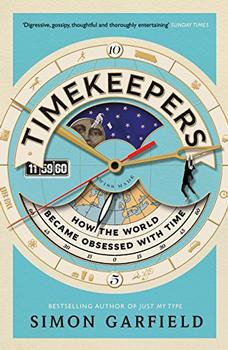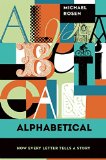Summary | Excerpt | Reviews | Beyond the book | Read-Alikes | Genres & Themes | Author Bio

A Book About Fonts
by Simon GarfieldA hugely entertaining and revealing guide to the history of type that asks, What does your favorite font say about you?
Fonts surround us every day, on street signs and buildings, on movie posters and books, and on just about every product we buy. But where do fonts come from, and why do we need so many? Who is responsible for the staid practicality of Times New Roman, the cool anonymity of Arial, or the irritating levity of Comic Sans (and the movement to ban it)?
Typefaces are now 560 years old, but we barely knew their names until about twenty years ago when the pull-down font menus on our first computers made us all the gods of type. Beginning in the early days of Gutenberg and ending with the most adventurous digital fonts, Simon Garfield explores the rich history and subtle powers of type. He goes on to investigate a range of modern mysteries, including how Helvetica took over the world, what inspires the seeming ubiquitous use of Trajan on bad movie posters, and exactly why the all-type cover of Men are from Mars, Women are from Venus was so effective. It also examines why the "T" in the Beatles logo is longer than the other letters and how Gotham helped Barack Obama into the White House. A must-have book for the design conscious, Just My Type's cheeky irreverence will also charm everyone who loved Eats, Shoots & Leaves and Schott's Original Miscellany.
As its tagline describes, Just My Type is precisely that - a book about fonts and almost everything one could possibly want to know about them. Garfield's breezy writing serves up many entertaining trivia - the role of hand gloves in font design; which font is used in the signs for the television sitcom The Office (and why); how Gotham played a large part in President Barack Obama's election campaign; and how the look of the entire city of London was changed by one beautiful font. Since each of the 22 chapters discusses a particular font (or two) and often its associated designer, the book can be read out of sequence and still make sense. Though at times, especially toward the end, the book can feel a little strained - as if Garfield were trying to cram all his research into the pages before time ran out...continued
Full Review
(837 words)
This review is available to non-members for a limited time. For full access,
become a member today.
(Reviewed by Poornima Apte).
These days, typefaces are designed using computer programs such as Macromedia Fontographer, but in the early days of type, each was made by hand using basic tools. There were three products that together formed the backbone of the process by which type was developed: the mold, the matrix, and the final piece also known as a "sort."
To create one letter, a basic punch in the shape of the letter was chiseled into some kind of pliable metal, usually copper. This formed the matrix for one letter and could be used over and over again. Many such matrices packed a mold.

Essentially, a mold contained many matrices for different letters in a grid pattern. The bottom part of the mold housed all the letter matrices and the top part ...
This "beyond the book" feature is available to non-members for a limited time. Join today for full access.

If you liked Just My Type, try these:

by Simon Garfield
Published 2018
As managing time becomes the greatest challenge we face in our lives, this multi-layered history helps us tackle it in a sparkling new light.

by Michael Rosen
Published 2016
Michael Rosen takes you on an unforgettable adventure through the history of the alphabet in twenty-six vivid chapters, fizzing with personal anecdotes and fascinating facts